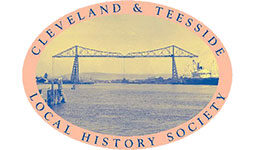Born: John de Balliol was born before 1208. He was the eldest son of Hugh de Balliol of Barnard Castle and Cecily de Fontaines.
Educated: Although John de Balliol was instrumental in founding Balliol College, Oxford, it is unlikely that someone of his time and social class would have had much in the way of education, beyond being trained in the knightly arts.
Married: In 1233 John de Balliol married Devorguilla, the third daughter of Alan, Lord of Galloway. This marriage considerably increased John’s wealth when his father-in-law died in the following year.
Family: John and Devorguilla had three sons, Hugh, Alexander and John. The youngest of these later became King of Scotland. John and Devorguilla’s daughters were Margaret, Cecily, Ada and Eleanor. The youngest, Eleanor, married John Comyn, one of the guardians of Scotland.
Home: Barnard Castle was the family home of the Balliols throughout the twelfth, thirteenth and fourteenth centuries.
Known for: John de Balliol was a trusted supporter of King Henry III and fought alongside him at the Battle of Lewes during the Baron’s Revolt. However, John de Balliol quarrelled with his local overlord, Walter Kirkham, Bishop of Durham. Balliol and two of his brothers, along with their men, assaulted four of the bishop’s men at St. Mary’s church Long Newton. They imprisoned the bishop’s men at Barnard Castle but eventually Balliol had to admit that he had done wrong. As a penance, John de Balliol was publicly whipped by the bishop in front of the door of Durham Cathedral and promised to provide for a number of students at Oxford University. He made provisions for this in his will and in 1282 his widow was able to draw up the statutes for Balliol College.
Died: John de Balliol died in October 1268.
Further Information: “A History of Northumberland” vol. 6, John Crawford Hodgson (1902)
“The Balliols in Teesdale” part 2, Lorne Tallentire in The Teesdale Record Society Journal 3rd Series vol.6 (1998)
